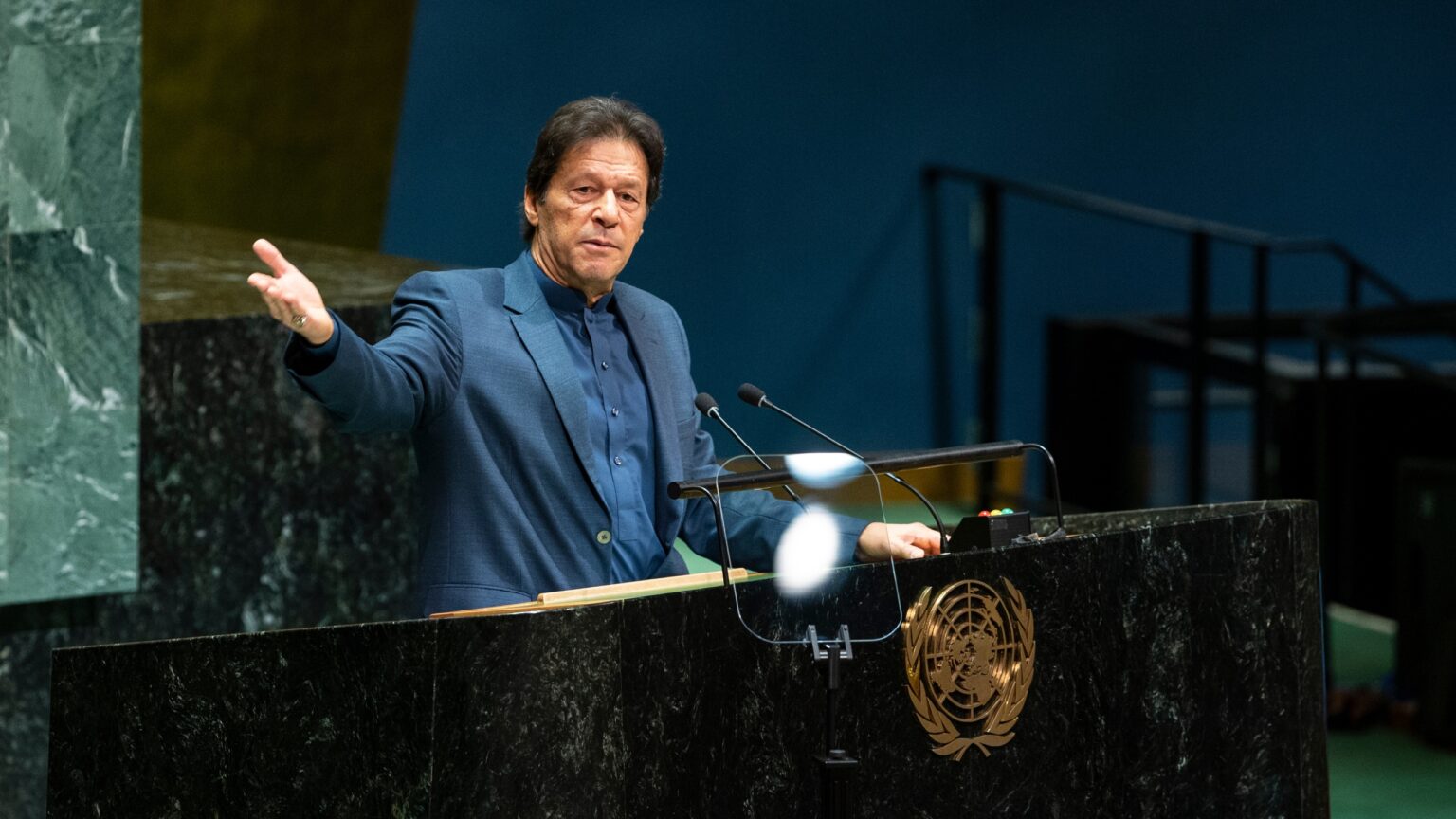The 2024 Pakistan general elections took a contentious turn as jailed former Prime Minister Imran Khan announced his victory through a controversial AI-generated message.
His political foe, Nawaz Sharif, also claimed victory, leaving the country’s people in an utter state. The electoral saga unfolded amid deep partisan fervor, advanced campaign tactics, and nation-seeking leadership.
Also read: Deepfake AI Audio Takes Over Live Discussions
AI in politics: a new frontier?
Imran Khan’s recourse to artificial intelligence to give his speech while in self-imposed isolation is a novel but debatable form of political communication. The video, shared via his X (formerly Twitter) handle, depicted Khan announcing his triumph; however, the juxtaposition of his lip movement and the speech could be perceived.
قوم کی جانب سے انتخابات میں تاریخی مقابلے، جس کے نتیجے میں تحریک انصاف کو عام انتخابات 2024 میں بے مثال کامیابی میسرآئی،کے بعد چیئرمین عمران خان کا(مصنوعی ذہانت سے تیار کردہ) فاتحانہ خطاب pic.twitter.com/8yQqes4nO9
— Imran Khan (@ImranKhanPTI) February 9, 2024
This unique approach nevertheless poses critical questions on the part of technology in future political campaigns and governance. How will AI determine political discourse and voter engagement in an era where credibility and transparency are of utmost importance?
The message Khan echoed was a defiant and united voice to protect success and not take it as a fluke. He disputed Sharif’s victory claim, reiterating the discrepancy in the number of seats and raising questions about his credibility. The international media’s shining light on Sharif’s premature jubilation was the main point emphasized, thus giving weight to Khan’s stand on the election results.
“Sharif is a dishonorable individual who, despite being 30 seats behind according to official results, delivered a victory speech… The international media is also writing about this foolishness.”
The electoral verdict: a nation decides
The election results showed a complicated political picture, where independent candidates, mostly belonging to Khan’s PTI, won many seats. This manifested the Division in Pakistan’s political milieu and possible alliances. Khan’s PTI outnumbered the PML (N) of Sharif and the PPP of Bilawal Bhutto-Zardari, indicating a more profound acceptance of the people and the rise in politics.
Nawaz Sharif’s reaction to the electoral results indicated a change in his argument as he accepted the necessity of coalition-forming in the absence of a clear majority. The appeal to possible allies signals the government’s pragmatic nature in the climate of political divisiveness. Sharif’s joint effort was evidenced in his attempt to tackle Pakistan’s challenges, which showed his acceptance of the complexities of parliamentary democracy and forging consensus.
“But since we don’t have such a majority that we can form the government on our own, we will invite other allied parties that have been successful in the election to join us.”
The public’s verdict and political implications
The support for Khan’s PTI, especially among the independents, illustrates a profound change in Pakistan’s political system. It questions the established power of the armed forces and other conservative forces. This election, characterized by its outcomes and unconventional methods of communication, has incited a feeling of empowerment among the populace, especially the youth. Hashim Ali Dogar, a Lahore resident, expressed this sentiment, praising the public for their opposition to perceived injustices.
“As a Pakistani, it was profoundly empowering to witness the collective outcry against injustice manifested through the ballot,” said Hashim Ali Dogar, as reported in CNN.









 and then
and then